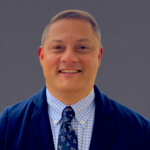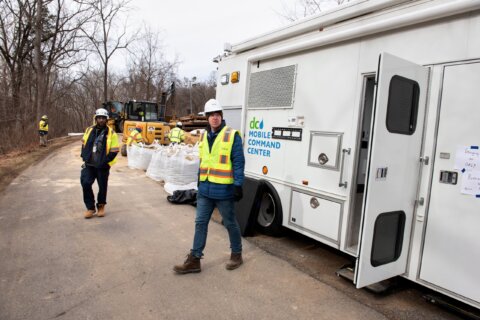Every week, WTOP is celebrating a Pride Hero who has made a difference in the LGBTQ+ community in the D.C. area as part of our Pride Month coverage. Check back all throughout June as we share these stories on air and online.
This video is no longer available.
On the cover of Peter Rosenstein’s memoir, “Born This Gay: My Life of Activism, Politics, Travel, and Coming Out,” is a picture of the moment that influenced the rest of his life.
The picture shows a 16-year-old Rosenstein presenting an award to Dr. Martin Luther King Jr.
Rosenstein was the awards commissioner for his school’s student government and was responsible for selecting the recipient of George Washington High School’s 1963 Citizenship Award.
No one was as surprised as Rosenstein that King agreed to travel to New York and accept the school’s award in person.
On Feb. 26, 1963, six months before he delivered his iconic “I Have a Dream” speech at the Lincoln Memorial, King was on stage being presented the award by Rosenstein.
“He was so generous with his time,” Rosenstein recalled. “We talked for close to an hour.”
During their time together, the civil rights leader looked Rosenstein in the eyes and said something that would become his guiding light.
“He said to me, ‘Peter, every person can make a difference in the world, if you care about things. Fight for them, work for them,’” Rosenstein said. “That is how I’ve led my life from that time on.”
Rosenstein took those words to heart, including during his time as a school teacher and his tenure working for the mayor of New York City.
When he was a staff member of the late U.S. Rep. Bella Abzug, he worked for women’s rights.
While serving in the White House during the Carter Administration, Rosenstein fought for the rights of the disabled community as Executive Director of the White House Conference on the Handicapped Implementation unit.
While he fought to improve the lives of people in different communities, he dealt with an inner struggle. Rosenstein was gay and living in the closet.
“I didn’t come out at a young age because I wanted to go into politics,” he said. “Back in those years, you couldn’t go into politics if you were an out gay man.”
Even though he didn’t come out until he was 35, moving to D.C. in 1978 was a big part of Rosenstein’s journey to living out of the closet.
“It was a time when you could go to gay bars and you could get there and bump into a congressperson, a member of the media, all of them closeted like I was,” Rosenstein said. “There was no fear that they would out me or I would out them. This was before social media and iPhones.”
In 1981, only six years after D.C.’s first annual Pride Day, Rosenstein decided to attend that year’s Pride Festival in Dupont Circle.
“I hid behind a tree so no one would take my picture,” Rosenstein said. “Back then, you had to worry about your job. There were no laws to protect you, for apartments or anything else.”
Rosenstein admits that it did take a long time to come out and to accept himself, but once he did, he became a champion for LGBTQ+ rights.
The HIV-AIDS crisis led Rosenstein to be more public about his sexuality.
He got involved with the Whitman-Walker Health nonprofit and helped fight the disease by taking the advice from Dr. King, and the knowledge he gained from working for the New York mayor, Congresswomen Abzug and the White House. He raised money and planned events to help spread awareness and find a cure for AIDS.
Marriage equality was also a passion project for Rosenstein. He was involved with getting a same-sex marriage law passed in the District five years before it was passed by the Supreme Count in 2015.
Rosenstein also played a role in the Mayor’s Office of LGBTQ Affairs taking over the 17th Street High Heel Races, which is D.C.’s second biggest LGBTQ+ event behind Capital Pride weekend.
While Rosenstein is well past retirement age, his appearance and drive leads you to believe he is much younger. The longtime columnist for The Washington Blade has been a trusted advisor to every D.C. mayor in this century.
“I wish I would have kept a journal,” Rosenstein said of the things he wishes he could go back and tell his younger self. “It would have helped with the writing of my book.”
Rosenstein said he hopes young people read his book.
“Part of my book is to say to young people, ‘you can come out, you can be yourself,'” Rosenstein said. “It really does make a difference once you do. You live more freely. You live openly and you live your truth.”
Who would know better than the man who, 25 years after hiding behind a tree at the Pride Festival, rode in the front of the Capital Pride Parade in 2016 with a sign declaring him a Pride hero.
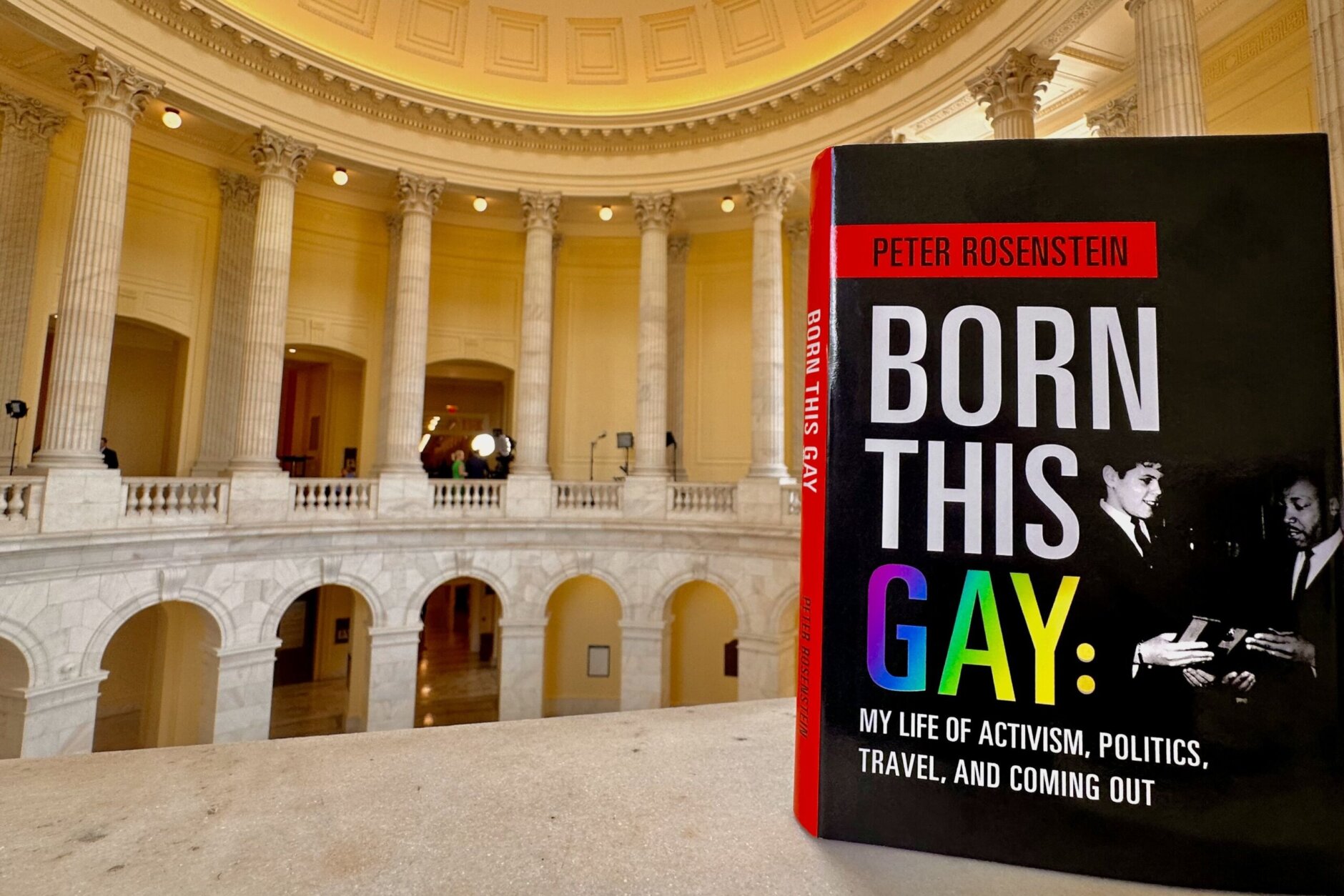
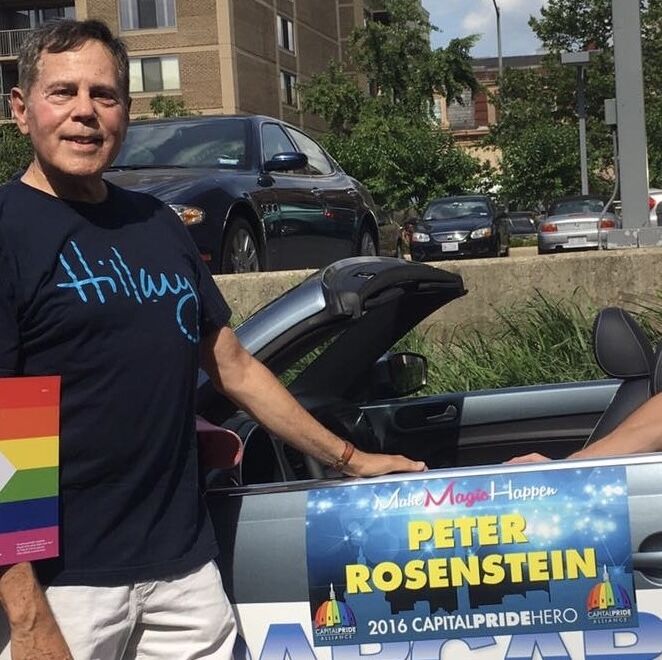
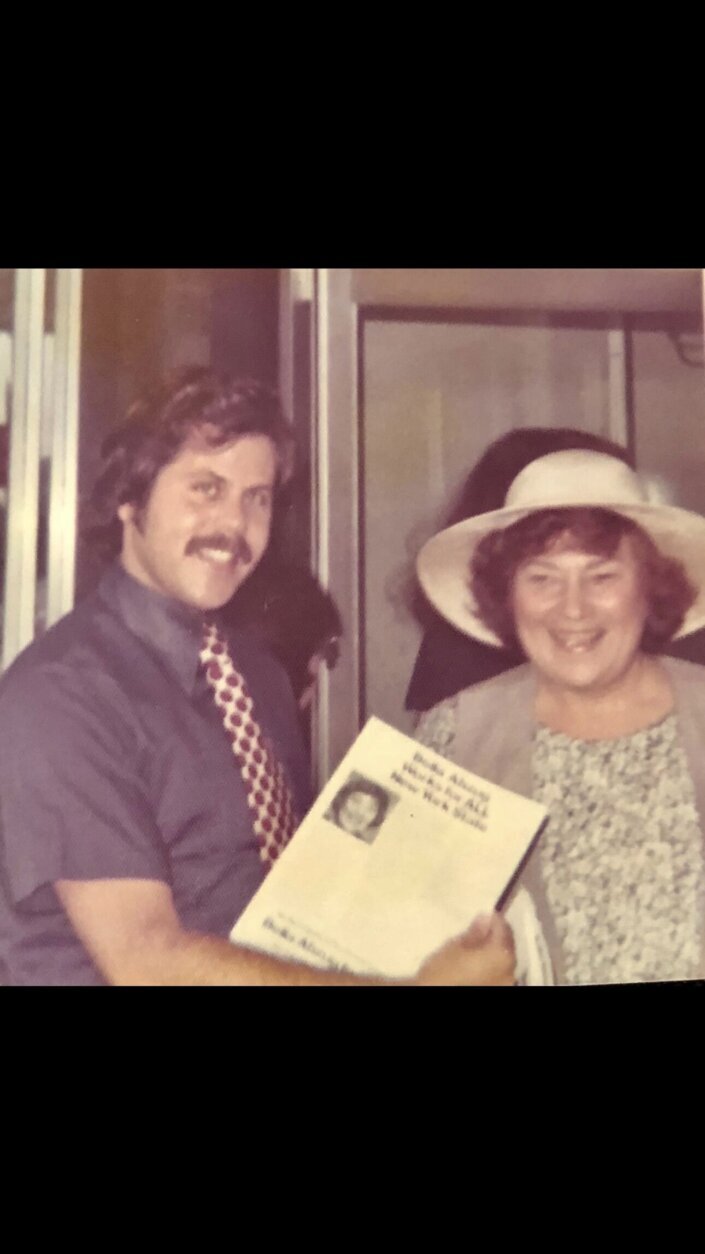
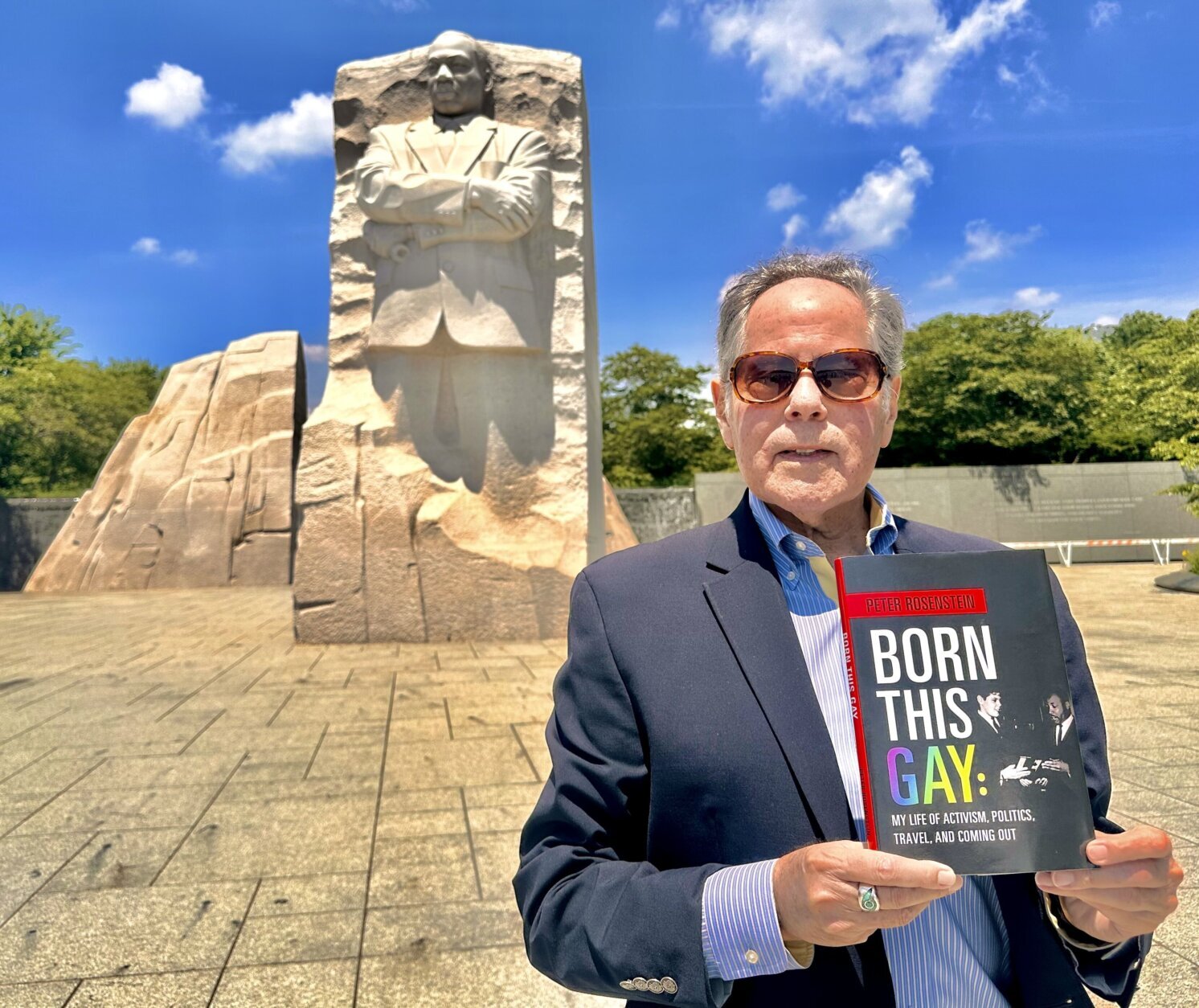
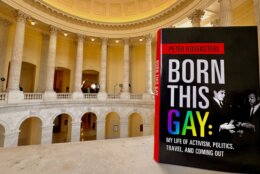
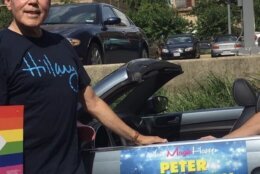
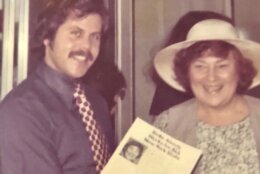
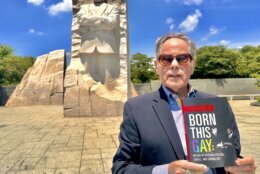
Get breaking news and daily headlines delivered to your email inbox by signing up here.
© 2024 WTOP. All Rights Reserved. This website is not intended for users located within the European Economic Area.

